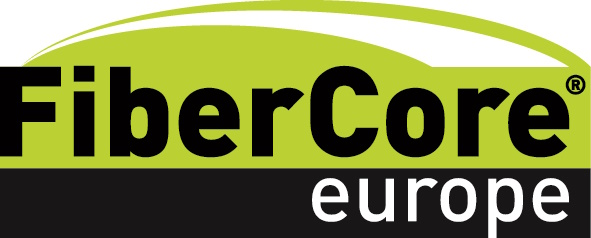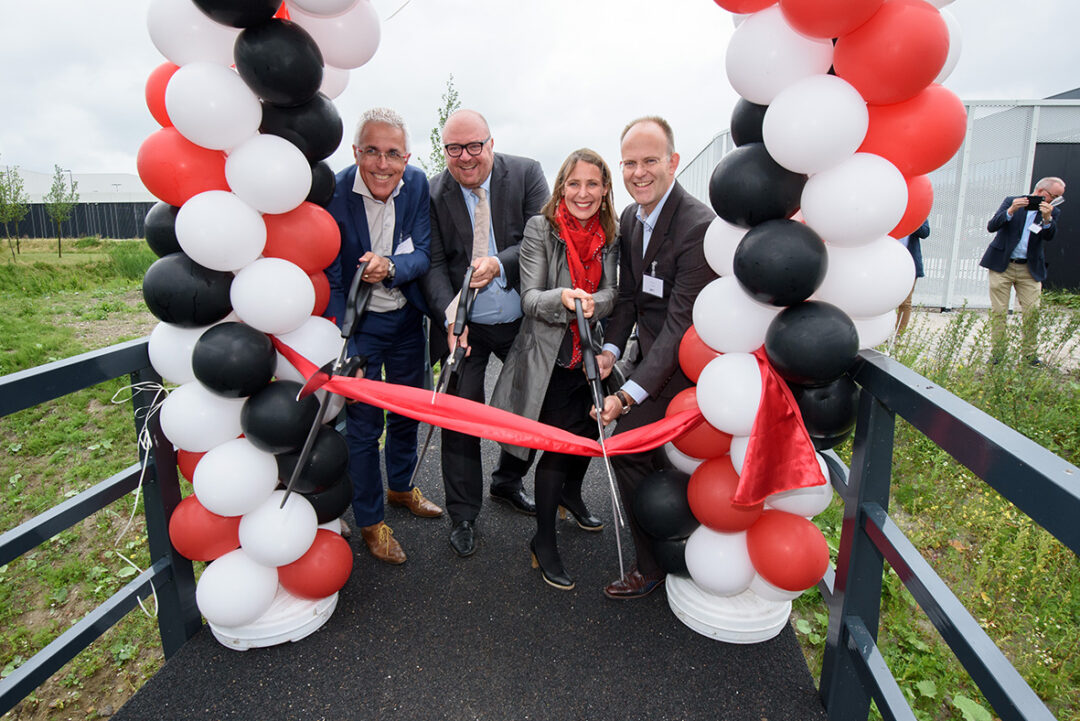Schiphol Logistics Park officially inaugurated the bio-based bridge at the logistics business park in Rozenburg, NH, on Monday, June 18. Schiphol Logistics Park, FiberCore Europe and TU Delft joined forces for this special pedestrian bridge. Never before has it been possible to produce a bridge structure with such sustainable products in a regular construction process. The composition of the materials makes the bridge innovative and special.
The bridge was officially opened today by FiberCore Europe CEO Jan Kroon, Jeanet van Antwerpen of SADC, alderman John Nederstigt of the Municipality of Haarlemmermeer and Joris Smits of Royal Haskoning.
Architect Rafail Gkaidatzis, as part of his graduate research within TU Delft's Bridge Design Group, has been researching a pedestrian bridge made of as many bio-based materials as possible. The result is a so-called bio-basalt-balsa (B3) bridge 15 meters long and 2 meters wide. The bridge lies across the waterway between Ringdijkpark and Naritaweg at Schiphol Logistics Park and is publicly accessible. For example, employees of the business park can use the green park and residents of the adjacent Aalsmeerderdijk can use the bridge to reach the bus stop at Schiphol Logistics Park.
At least 100 years
The bridge deck was produced biobased as much as possible. Basalt fibers and biobased polyester resin are the main raw materials of the bridge deck. Advantages of fiber-reinforced plastic (also called composite) over traditional building materials are their high strength, low energy requirements during construction, low maintenance requirements and long life. In addition to being safe, this also makes it a sustainable building material. The structural properties of the material are not subject to rot or corrosion. As a result, the material is expected to last at least a hundred years, with no need for replacement and minimal maintenance in between.
Lava
Basalt fibers are made from the basaltic rock, the volcanic igneous rock created by solidification of lava. The main advantage of using basalt fiber over other technical fibers (such as fiberglass) is the strength of the material. Because the fiber is so strong, it requires less material and creates a lightweight bridge. In addition to the strength of the fiber, the material is also completely recyclable. Because it is a volcanic rock, the fiber can be remelted and extracted after the bridge's useful life ends, allowing the material to be reused.
The resin used for this bridge is partly of natural origin. Polyester resin is made from a reaction of a large number of molecules with both a carboxylic acid and an alcohol group in the molecular chain. To make it, bio-resin glycol derived from vegetable glycerin is used.
FiberCore Europe has extensive experience in building composite bridges, having already delivered a bridge with bio-resin in 2012. In the bridge for Schiphol Logistics Park, even more materials are biobased. It is this combination of materials that makes the project so unique. These materials have never before been used in a bridge construction. They are an important step in making the product more sustainable, thus contributing to the realization of a sustainable society.
Entrepreneurship with guts
The sustainable bridge is the result of excellent cooperation between all parties involved. Not only technical challenges were overcome, but administrators, financiers and the client showed courage to realize this innovation in deviation from standard procedures.
The composite bridge at Schiphol Logistics Park was made possible by the supplier of the basalt fibers Mafic S.A., the supplier of the balsa BALTEK VBC by Airex AG, a member of 3A Composites, Poly Base Produktie B.V. for processing the balsa and Royal Haskoning DHV.


